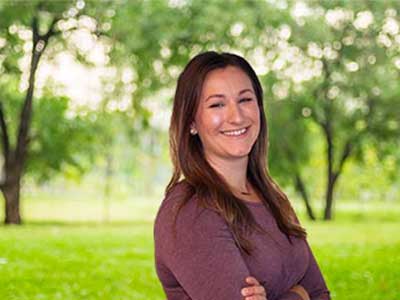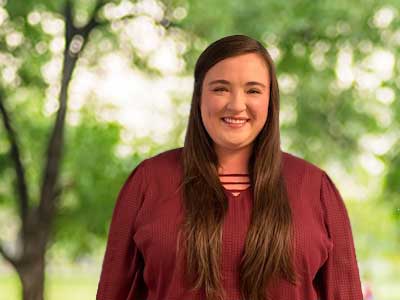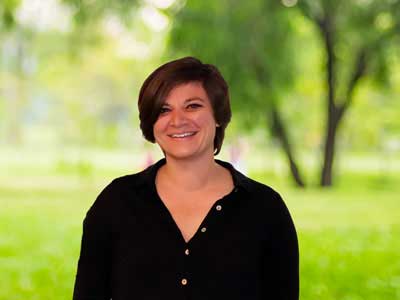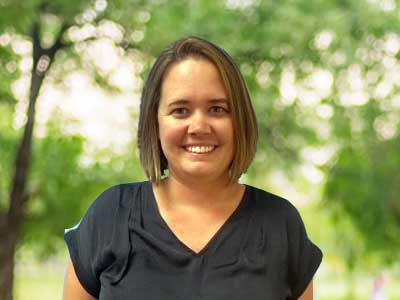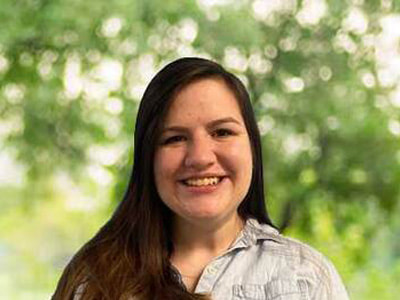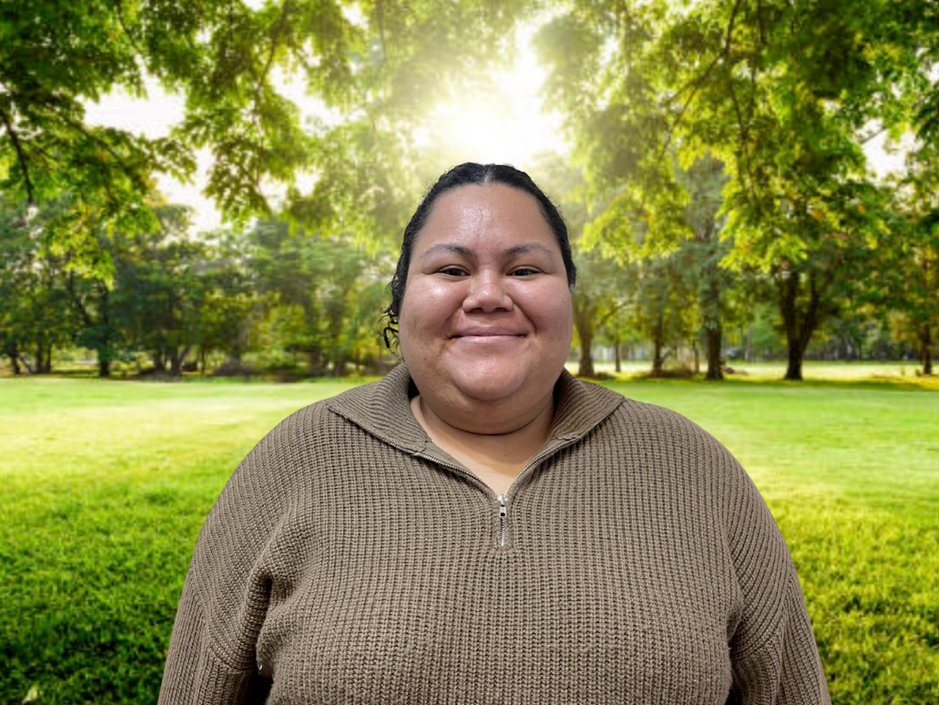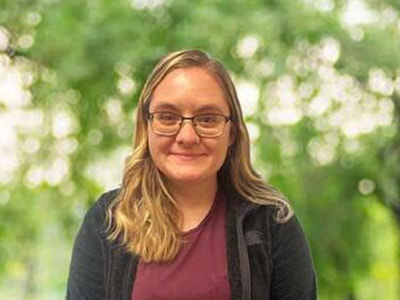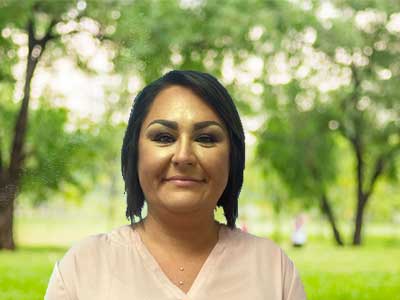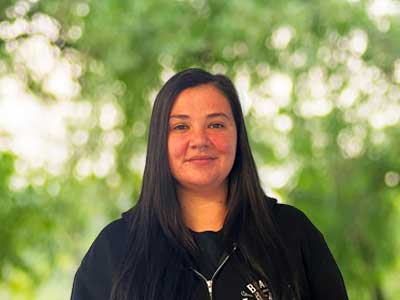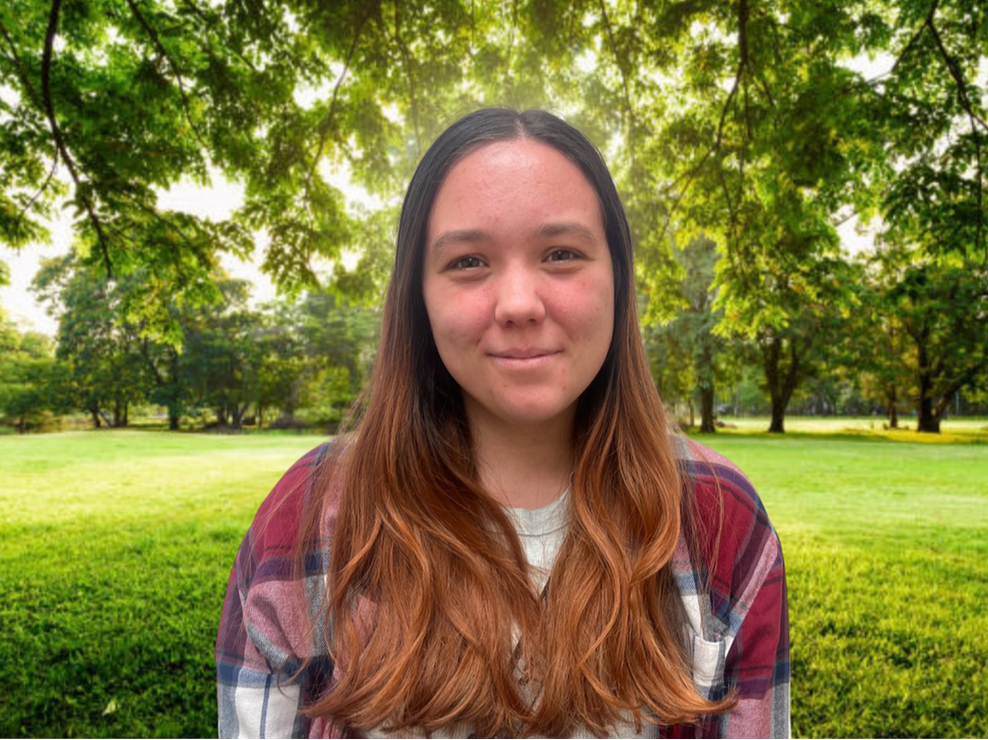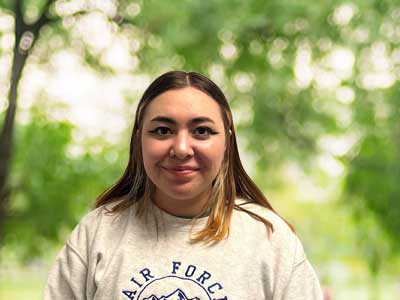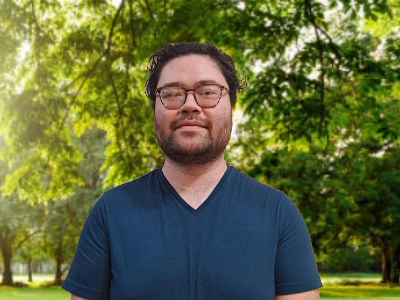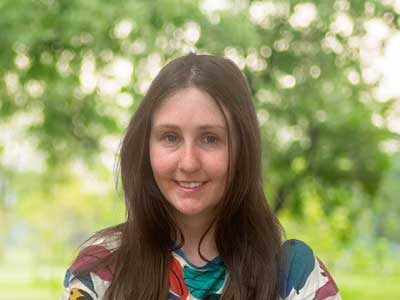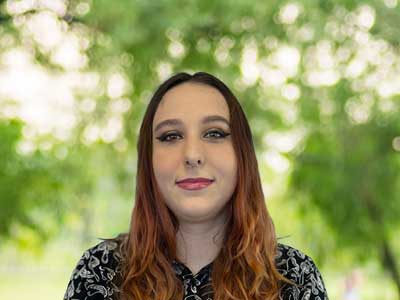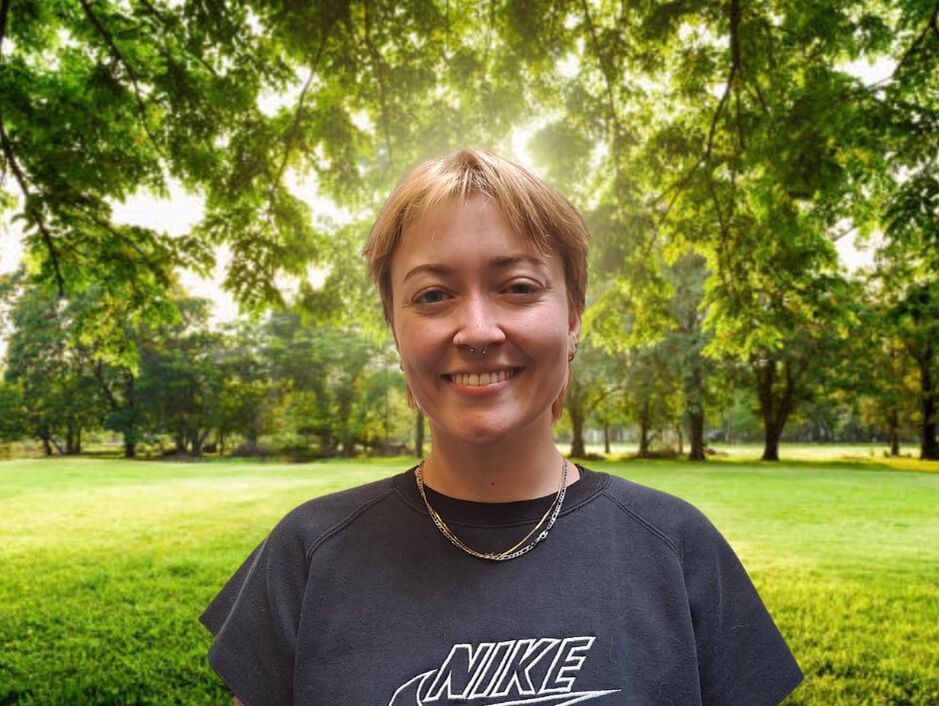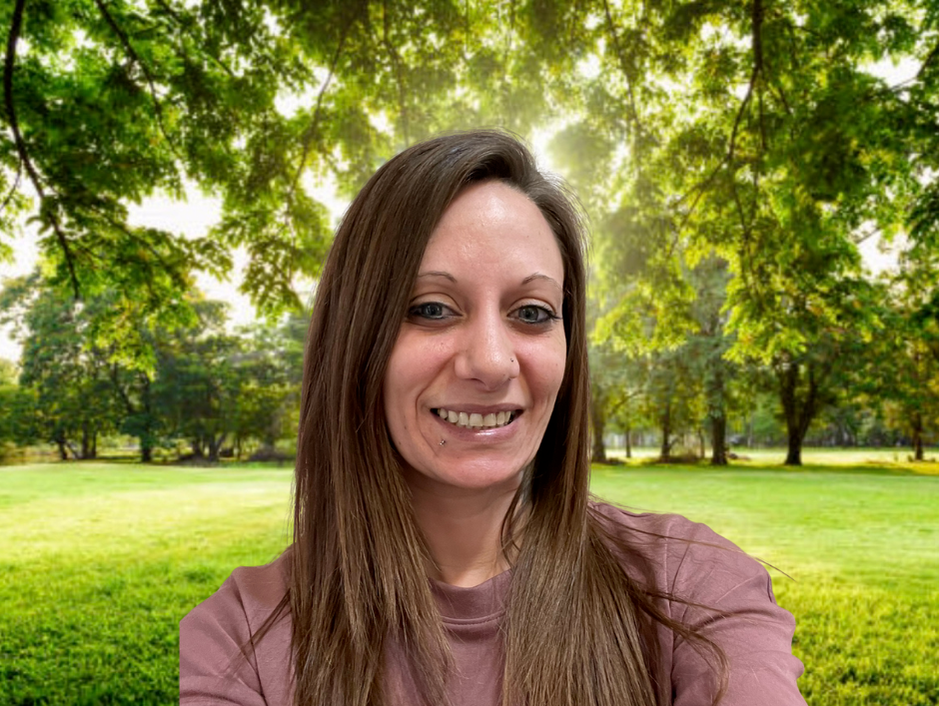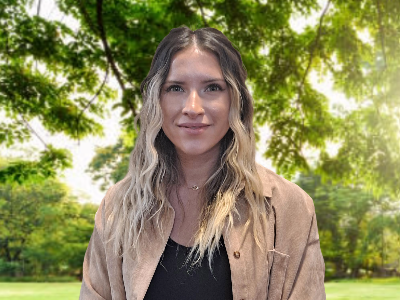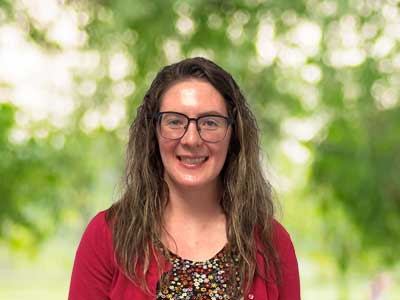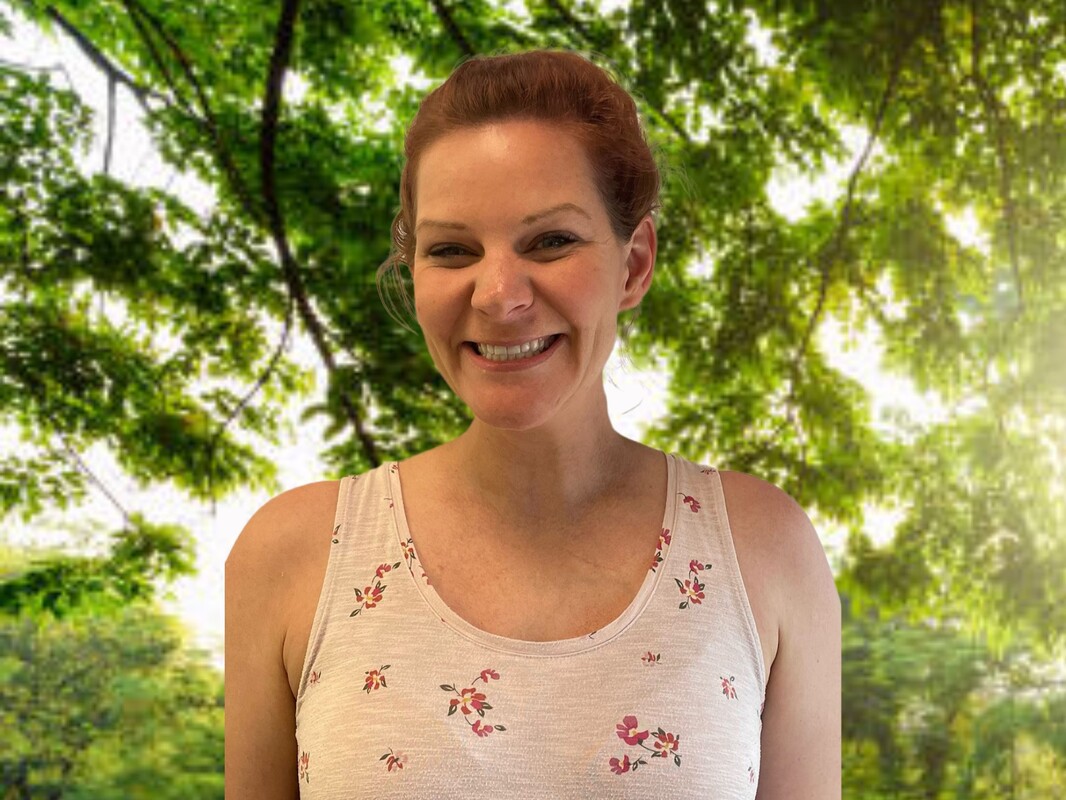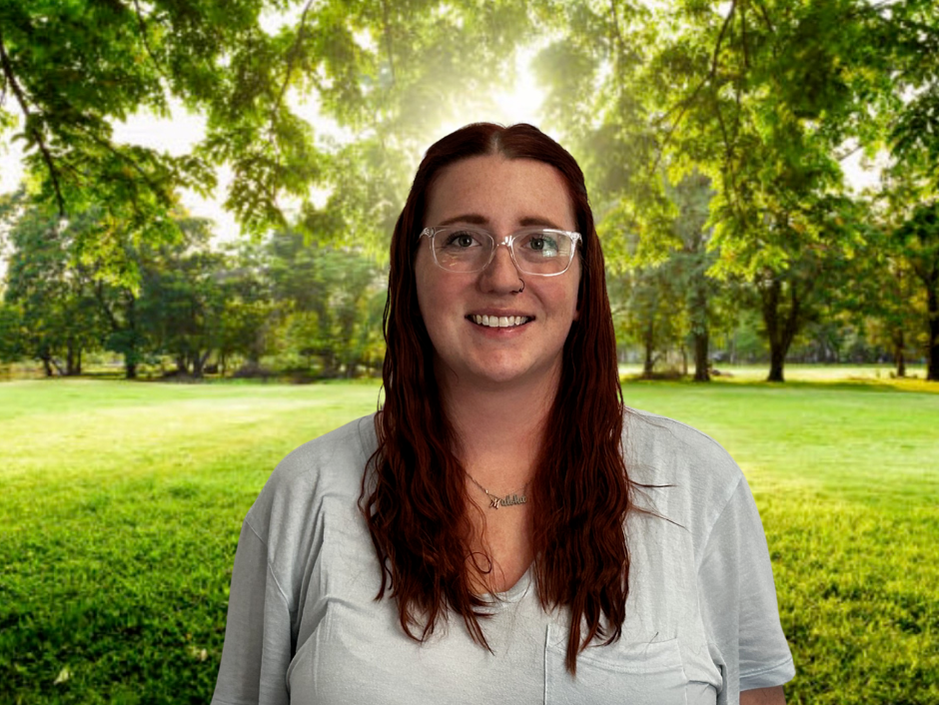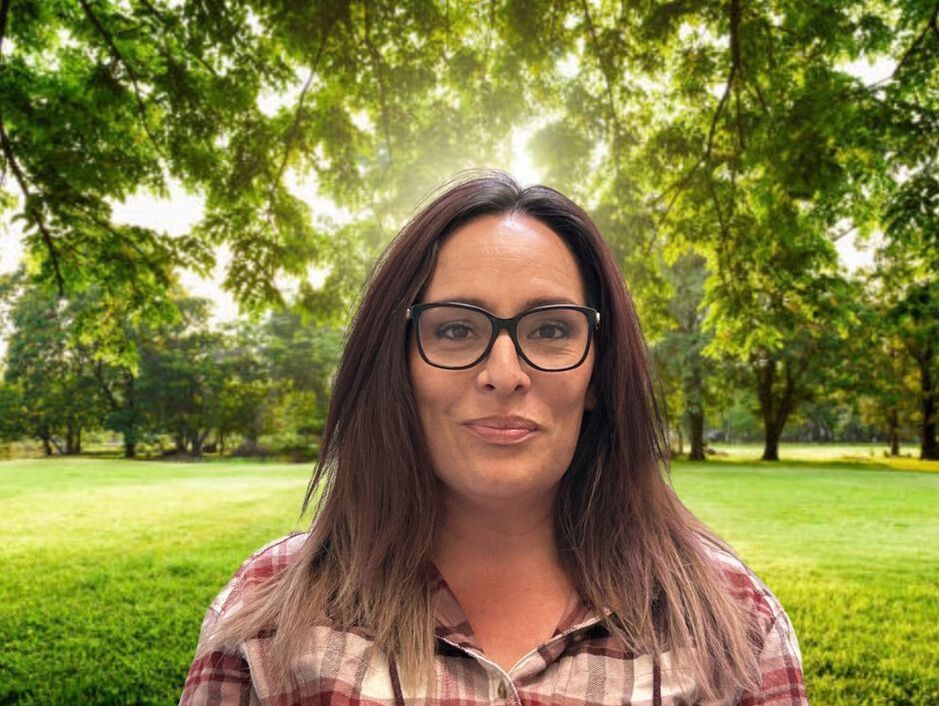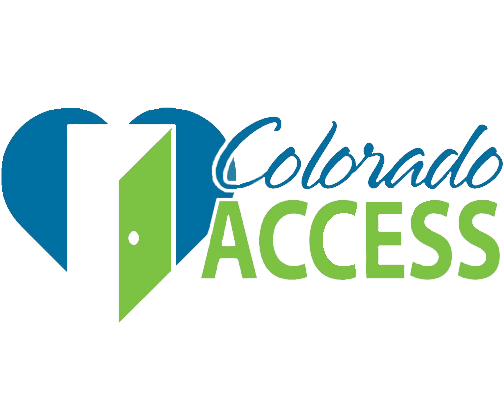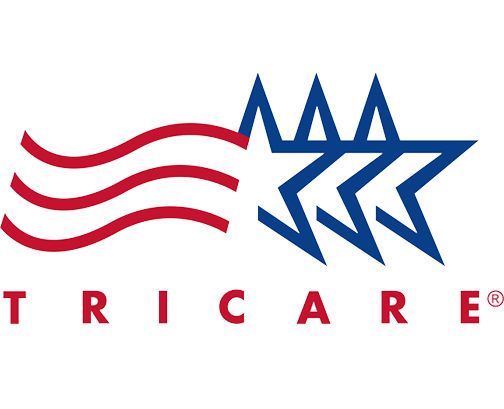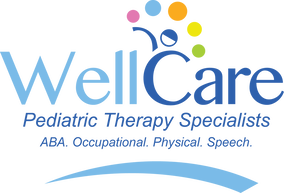Shape Divider - Style waves
Enhancing Connection and Communication
At WellCare, we understand the challenges parents face in supporting their children’s growth and development. That’s why we offer comprehensive solutions designed to support your child's unique strengths and needs:
- One-on-one, Center-Based, Home & Community ABA Therapy: Personalized therapy sessions designed to help your child thrive in any setting.
- Ongoing Parent Training & Support: Empowering you with the tools and knowledge to better communicate and connect with your child.
- Individualized Programming: Custom plans that address your child’s specific needs and goals.
- Consultations & Evaluations: Expert assessments to guide effective support strategies.
- Functional Behavioral Assessments: Identifying and understanding behavioral patterns to enhance your child’s quality of life.
- Language and Skill Assessments: Supporting communication and skill development.
- Social Skills Training, Food Selectivity, and Potty Training: Practical solutions for everyday challenges.
- Collaboration with In-House Physical, Occupational, and Speech Therapists: Providing comprehensive support for your child's development.
- Collaboration with Outside Service Providers: Ensuring your child receives well-rounded care by working seamlessly with other professionals involved in their development.
- Our dedicated team at WellCare: Here to support you every step of the way.
Center-Based and Home-Based ABA Services
ABA Clinic
WellCare Pediatric Therapy Specialists offers personalized, intensive services to children ages 2 - 12 in our ABA clinic providing behavioral evaluation and ABA Therapy (Applied Behavior Analysis) for children with autism spectrum disorders.
Our clinic setting is designed to ensure the safety and happiness of your child. We offer bright, open group spaces with plenty of natural light, indoor play areas, and access to outdoor play areas, including a park and playground right outside our door. We welcome outside service providers to work with clients within our facility, ensuring your child can receive all their services in one location, enhancing collaboration between all team members. WellCare Pediatric Therapy Specialists provide ABA services at our two clinics, located at 1930 Frequent Flyer Point and 2105 Academy Circle. Our clinics are open from 7 a.m. to 6 p.m., Monday through Friday, by appointment only.
Individualized Behavior Intervention Plans
One-on-one services are provided within spacious private therapy rooms with daily direct service and supervision provided by Board Certified Behavior Analysts (BCBA).
Children attend our program daily for 17.5 hours per week (part-time) or 35 hours per week (full-time) at our clinic. Each child receives a great amount of attention, support and high-quality individualized services, including access to a multi-disciplinary team of ABA, Occupational, Physical and Speech therapists. Our team-focused approach includes BCBAs who also work directly with children and provide parent training and in-home support.
Each child within our program receives a fully individualized Behavior Intervention Plan containing developmentally appropriate skill acquisition goals meant to target the core deficits of autism. Services are provided across all environments (clinic, home, and community) and progress is tracked daily allowing for on-going modifications to accelerate success.Home & Community ABA Therapy
We encourage learning skills in various natural environments rather than at a table. Our program includes daily integration within the community with daily walks and playground time as well as weekly outings to restaurants and shopping where we may then focus on behavioral and functional skills within the natural environment. Our group activities also allow our clients to receive one-on-one support to facilitate learning and social interactions with peers.
Our unique location backs to the Garden Ranch park and playground and is within walking distance to key community locations. We believe in the importance of integrating our clients into the community as much as possible to generalize learned skills to real world settings.
Plans are comprehensive to help each child reach their maximum potential to function independently and actively participate at home, in school and in the community.Everyone Who Enters Our Care is Family
As a locally owned family-focused company, WellCare Pediatric Therapy Specialists takes a very personal approach to developing individualized ABA treatment plans.
We work to get to know our children as unique individuals and work alongside families to educate, encourage and nurture their children's full potential.
We believe having a consistent daily routine is important for our children's success and helps prepare them for transitioning into an educational setting. Research has shown that intensive ABA treatment is the most effective, especially for younger learners, and we are able to make great strides with language, toilet training, and various other skills that require more time and intensity than the child might otherwise receive in home, school, or with more limited services.
Meet Our ABA Team
|
Nicole MS, BCBA
BCBA Clinic Coordinator BIO
Nicole began her education in behavior analysis as an undergraduate at the University of Kansas where she graduated in 2013 with a degree in Applied Behavior Sciences with an emphasis in early childhood education & intervention. While at the University of Kansas, Nicole worked as Research Assistant in the Applied Behavior Analysis Department and as an Assistant Lead Teacher in a preschool program. She earned her certification as a Board Certified Assistant Behavior Analyst (BCaBA) in 2013. Nicole graduated from the Sage Colleges in 2016 with Master’s degree in Applied Behavior Analysis with a focus on autism and became a Board Certified Behavior Analyst that same year. She has been providing behavioral services to clients with autism and their families since 2011 and has served in a leadership role as a Clinical Director of a large ABA clinic for the past two years. Nicole enjoys working directly with clients as well as training professionals and parents in ABA principles. Abby MA, BCBA
Senior Board Certified Behavior Analyst Bio
Abby has been a Board Certified Behavior Analyst since 2021, and has been in the field of Applied Behavior Analysis (ABA) since 2019. She holds a Master of Arts degree in Special Education with an emphasis in ABA from Arizona State University. She has experience working with clients ranging in age from 18 months to 54 years old, encompassing a wide variety of diagnoses and behavioral concerns. Abby loves ABA because it is the perfect blend of science and human services. She is devoted to providing compassionate care and connecting individually with each of her clients to support personalized growth, and loves using data and analysis to support client progress. She enjoys working with clients and their families to identify the specific goals that will make the most meaningful difference, and collaborating with the client’s treatment team to accomplish these goals. Outside of ABA, Abby loves baking, gardening, making pottery, and spending time with her fur babies! |
Jaime MA, BCBA
BCBA Clinic Coordinator BIO
Jaime graduated from National University in 2016 with a degree in Psychology. She earned her Master’s in Behavior Analysis from Florida Institute of Technology in 2019 and has completed her intensive practicum requirements at WellCare. Jaime has worked in the field of ABA for over 3 years. She earned her RBT credential in 2016 and her certification as a Qualified Autism Service Professional (QASP) in 2019. Jaime relocated from Florida to join the WellCare family in 2017. Shannon MA, BCBA
Senior Board Certified Behavior Analyst Bio
I graduated with a Bachelor's degree in Psychology in 2014. During this time, I stumbled upon the field of ABA from my classmates. Once I started working in this field, I knew this is what I wanted for my career! In 2018, I received my Master's in Applied Behavior Analysis and Autism. I have worked in the field for seven years as an RBT, QASP and finally a BCBA. I enjoying working with kids and knowing that our work together will impact the rest of their lives. I have an 18-month old daughter and when I'm not working, my world revolves around her. |
Katie MA, BCBA
In-Home ABA Program Coordinator Bio
Katie began her career as a teacher in 2007 while working with families and children ages 3-5 years old. After graduating with her BA in Early Childhood Educational from Colorado Christian University (CCU) in 2009, she began teaching in the elementary setting and worked to obtain her MA in Curriculum Instruction and Design from CCU in 2012. Katie holds a Colorado Special Education license as well as an Elementary Education license. While teaching in the general education setting, she discovered her passion was working with at-risk students in the special education setting. She earned her certification as a Board Certified Behavioral Analyst in 2019, after graduating from the University of Northern Colorado with a MA in Special Education Intervention, with an emphasis in Applied Behavioral Analysis. Since earning her BCBA, she has worked primarily in the in-home setting, providing ABA services to children in the home, community and school settings. Katie enjoys working with the kids and families, and providing training to professionals in the field of ABA. Mackenzie MA, BCBA
Senior Board Certified Behavior Analyst Bio
Mackenzie graduated from Northern Michigan University with a degree in psychology and an emphasis in Applied Behavior Analysis in 2016. Mackenzie began providing ABA services to children with autism in 2017. Mackenzie has previous experience working with children with autism in educational and clinic-based settings and has previously worked as a therapist for clients with severe behavioral challenges at the New England Center for Children in Massachusetts. Mackenzie earned the BCBA credential in 2022. |
|
Christine MEd, BCBA
Senior Board Certified Behavior Analyst Bio
Christine began her career in the field of ABA in 2011 and obtained her Masters in Education in Instruction and Curriculum with a specialization in Applied Behavior Analysis from Arizona State University in 2018. Christine has worked in the field of ABA for over 10 years. She has worked with clients as young as age 2 up to 67 years old with a variety of diagnoses in the home, school, adult day program, and group home settings. She obtained her certification as a BCBA in 2020 and has primarily been working in the home and school settings since then. Christine loves seeing her clients' confidence grow along with their progress. She loves working with the clients and parents, as well as providing training of ABA principles to all involved with our clients' treatment plans. |
Mollie MA, BCBA
Senior Board Certified Behavior Analyst Bio
Mollie graduated from Liberty University in 2019 with a Bachelor's Degree in Special Education and Behavior Sciences. After obtaining her RBT certification in 2019, she began clinic-based ABA therapy with children ranging in ages 2-14. Her love for the field continued to grow and she decided to pursue her Masters. She graduated from Arizona State University in August of 2022 with a degree in Special Education: Applied Behavior Analysis. A few months later Mollie sat for her BCBA exam and became certified in March of 2023. She has experience working with the special needs population ranging in ages from 2 to 14 years old both in-clinic and in-home. She is motivated daily by her love for children and their smiling faces. She cannot wait to learn more and gain experience while working with children with Autism and other Developmental Disabilities. She feels honored to be a part of her client’s stories and cannot wait to help them grow! |
|
Ryan MA, BCBA
Board Certified Behavior Analyst Bio
Ryan has worked in the mental health field for eight years, and been in ABA for six years. He worked as an RBT for three years and is now on his third year as a BCBA. He has experience in the home, clinic, school and community settings. He loves seeing the progress the kids make when they are given the right structure, tools and therapy. He loves giving them as much time to be creative and just be kids while still teaching them communication and functional skills. |
|
Leandreia RBT
Registered Behavior Technician Bio
Leandreia started her career in childcare. She worked her way through a learning center running her own classroom. She was able to facilitate creative growth and a healthy learning environment for infants to school age. Through her eagerness to learn more she found ABA and fell in love with the field. From tracking ages and stages in the classroom setting and speaking to parents about other resources she found her calling in ABA. She has gained so much knowledge and has enjoyed so many positive interactions with people from all walks of life. She loves working with children because it truly takes a village. She finds being able to witness a child's growth and being a part of their story rewarding. |
|
Jasper RBT
Registered Behavior Technician Bio
My name is Jasper Spearing and I became RBT credentialed in 2021. The reason why I started my path in the ABA field is because I grew up with my step sister who has autism and she didn’t have the resources to get ABA therapy growing up. My goal is to become more immersed in the ABA field, so that I can help others enjoy learning and working towards achieving their goals. I love to cook - I went to PPCC to get a degree in Culinary Arts - but my passion stays in the kitchen and not the profession. I love a lot of nerdy things like video games, Star Wars, Lord of the Rings, and Pokemon. |
|
Nathan RBT
Registered Behavior Technician Bio
Nate has been in the ABA field since 2022. Nate loves his job because he is able to help a population of kids that are often looked over. He finds it an honor to see and help kids grow and be part of their lives. He loves being able to help and watch the kids grow into their best, most successful selves every day! |
|
Clarissa RBT
Registered Behavior Technician Bio
Clarissa became an RBT since the beginning of 2024. She is fairly new to the field and she looks forward to learning more about it with everyone! She has her Bachelor's in psychology and have several years of experience working with kids. Before becoming an RBT she was working with children in a mental health clinic. She likes working with kids because they make her laugh and its always exciting to watch them as they learn. |
|
|
|
Sydney RBT
Registered Behavior Technician Bio
Sydney works as a Registered Behavior Technician in the Colorado Springs, CO area. She enjoys working with individuals with Autism Spectrum Disorders (ASD). It's awesome to see the progress her clients have made since beginning Applied Behavior Analysis Therapy. She works primarily with individuals with ASD from the ages of 2 to 17 Her professional experience in the field varies from in school services, to home and center based. Her career began in a paraprofessional role and grew into behavior specific care. She finds working with children fulfilling because she is able to aid in them reaching their full potential. |
|
Corissa RBT
Registered Behavior Technician Bio
Corissa loves working with children because they are are so resilient. They are so imaginative and happy even when they have a rough day. She has worked as a bedside CNA in memory care and hospice setting for the past eight years. She became an RBT to combine her medical experience and love for your children. Haleigh RBT
Registered Behavior Technician Bio
Haleigh is new in the ABA world. She has been a registered behavior technician since 2023. She enjoys working with early learners and school age kids. She enjoys being able to make a difference in children's lives. As an RBT she is able to see and be part of the kid's triumphs. Emma RBT
Registered Behavior Technician Bio
Emma has been in ABA for the last two years. She currently has a Associates in Psychology. She has worked with clients ages three years old to thirty. She loves being able to be a support system for kids that need some extra help. She enjoys being able to see the growth they can make. She currently has a associates in Psychology. |
Cassandra RBT
Registered Behavior Technician Bio
Cassandra became an RBT in 2022. She loves the ABA field and being able to utilize the skills acquired to help others. She has experience working with newborns to elderly. She appreciates being in a field where compassion is a virtue. She believes working with children is wonderful and enjoys that every day brings something new. Seeing he world through a kid's eyes is always a rewarding feeling. |
Katie RBT
Registered Behavior Technician Bio
Katie works as a Registered Behavior Technician in the Colorado Springs, CO area. She finds it rewarding to see the progress her clients have made since beginning Applied Behavior Analysis Therapy. Her professional experience in the field varies from in school services, to community and center based. She has been in the field for four years and is looking forward to growing her knowledge working at WellCare. |
Insurance Partners
Frequently Asked Questions
What is ABA?
Applied Behavior Analysis (ABA) is based on the science of behaviorism with over 50 years of empirical knowledge behind it. Behavior Analysts use scientifically valid methods to increase behaviors or to teach new behaviors, to maintain behaviors, to generalize behaviors to other environments, as well as to reduce problem behaviors or any behaviors that interfere with learning. It is a true science and Behavior Analysts adhere to its principles of data collection to monitor progress.
Why ABA?
Applied Behavioral Analysis (ABA) is the only scientifically valid treatment for autism and has been endorsed by most state and federal agencies. Within ABA there are also various treatment approaches and methodologies. ABA is the science of learning and motivation and it is widely applicable to a variety of fields.
What is a board certified behavior ANALYST?
Board Certified Behavior Analysts (BCBA) are masters level clinicians who have completed approved graduate programs in Applied Behavior Analysis (ABA), met supervised fieldwork hour requirements, and passed a certifying exam through the Behavior Analyst Certification Board (BACB). This is not an entry level qualification and most Behavioral Analysts have been working in the field for a number of years. BCBAs are required to keep up to date in the latest research by participating in continuing education coursework to maintain their certification, and are bound to adhere to strict ethical guidelines. Please see the BACB website for more information about these requirements and to verify the qualifications of service providers.
Isn't ABA unnatural/robotic/bribery?
People with autism can acquire new skills by being taught that engaging in a certain response will bring about some type of reward. Because social interactions or social praise are not always rewarding to people with autism, some unnatural rewards may be used at first to increase the motivation to engage in the desired behavior until more natural situational rewards can have an opportunity to take their place.
ABA has also suffered from the stereotype that it produces ‘robotic’ results. Unfortunately this can be true when services are provided by inexperienced practitioners who teach skills in a very inflexible and rote manner or who fail to work on generalization training. Because inflexibility and the inability to generalize skills across environments are characteristic of autism, it is especially important that all skills be taught in natural contexts as quickly as possible.
Many families who reject the more unnatural aspects of ABA teaching, may become turned off to ABA entirely and seek out non-research based treatment approaches which focus on relationship building and play. However, these same aspects of relationship building and play can also be used in ABA. In fact, these alternative therapies are only successful if they use the principles of behaviorism to begin with (harnessing motivation, tracking progress, etc.). Behaviorism is based in motivation–and you cannot teach anything without some degree of engagement or perceived value.
ABA has also suffered from the stereotype that it produces ‘robotic’ results. Unfortunately this can be true when services are provided by inexperienced practitioners who teach skills in a very inflexible and rote manner or who fail to work on generalization training. Because inflexibility and the inability to generalize skills across environments are characteristic of autism, it is especially important that all skills be taught in natural contexts as quickly as possible.
Many families who reject the more unnatural aspects of ABA teaching, may become turned off to ABA entirely and seek out non-research based treatment approaches which focus on relationship building and play. However, these same aspects of relationship building and play can also be used in ABA. In fact, these alternative therapies are only successful if they use the principles of behaviorism to begin with (harnessing motivation, tracking progress, etc.). Behaviorism is based in motivation–and you cannot teach anything without some degree of engagement or perceived value.
How is Wellcare pediatric therapists different than other companies?
WellCare Pediatric Therapy Specialists firmly believes that in order to achieve the best results for clients everyone working with the client must be on the same page. This includes educators, service providers, and family members. WellCare has an open-door policy for families and welcomes outside service providers for collaboration, thus allowing for us to easily bridge the gap between all members of the team. We also routinely go into clients’ schools to collaborate with educators and provide on-going training to parents and other family members. Our goal is to offer support and ensure consistency across all environments.
We share a philosophy in the benefits of naturalistic teaching. We believe skills taught in the natural environment and in natural situations produce the greatest results. Our approach revolves around using the client’s interests to create motivation for learning. We also adhere to teaching the most important skills first, skills that revolve around the core deficits of autism like communication (expressing wants, answering questions, labeling objects in the environment), social skills (watching and learning from others, engaging with others, sharing experiences with others, following social norms), and play (using objects appropriately as intended, being able to remain engaged in activities, playing with peers).
WellCare is also unique in that our BCBAs are always on-site and accessible and our ABA Therapists are well supervised. WellCare holds high standards for our Therapists. We only hire Certified Registered Behavior Technicians (RBT) with at least a Bachelors degree who have 1 or more years of experience providing ABA services to children with autism. The majority of our RBT’s are also enrolled in Masters degree programs in ABA and are dedicated to this field as their career. Because of our supportive and dedicated team, we have little staff turn-over and our RBTs are always featured on our bio page.
We share a philosophy in the benefits of naturalistic teaching. We believe skills taught in the natural environment and in natural situations produce the greatest results. Our approach revolves around using the client’s interests to create motivation for learning. We also adhere to teaching the most important skills first, skills that revolve around the core deficits of autism like communication (expressing wants, answering questions, labeling objects in the environment), social skills (watching and learning from others, engaging with others, sharing experiences with others, following social norms), and play (using objects appropriately as intended, being able to remain engaged in activities, playing with peers).
WellCare is also unique in that our BCBAs are always on-site and accessible and our ABA Therapists are well supervised. WellCare holds high standards for our Therapists. We only hire Certified Registered Behavior Technicians (RBT) with at least a Bachelors degree who have 1 or more years of experience providing ABA services to children with autism. The majority of our RBT’s are also enrolled in Masters degree programs in ABA and are dedicated to this field as their career. Because of our supportive and dedicated team, we have little staff turn-over and our RBTs are always featured on our bio page.
What does aba therapy look like?
ABA Therapy is the umbrella containing various different approaches (discrete trial teaching, pivotal response training, verbal behavior, natural environment teaching, etc.) When considering any treatment it is most important for families to ensure their treatment is a valid ABA approach. There are many types of autism treatment programs available that are not scientifically valid, make false claims to their effectiveness, and ultimately waste valuable treatment time. The best ABA treatments incorporate all these various different approaches based on each individual client and their learning histories.
Therapy revolves around the skill acquisition goals indicated in the plan. These are the behaviors that we would like to increase, and behavior reduction goals are the maladaptive behaviors that we wish to decrease. The skill acquisition goals are meant to replace or provide communicative alternatives to the problem behavior and serve as a foundation for learning various other necessary skills.
Therapy revolves around the skill acquisition goals indicated in the plan. These are the behaviors that we would like to increase, and behavior reduction goals are the maladaptive behaviors that we wish to decrease. The skill acquisition goals are meant to replace or provide communicative alternatives to the problem behavior and serve as a foundation for learning various other necessary skills.
What is your process and what will take place?
We are happy to discuss services and answer any questions you may have about what we do and our treatment approach. We do require interviews with parents and clients to determine if our program would be a good fit for your family. It is important to note that we are only admitting clients to our program who are a likely to be a good fit with us and our current clients and who are in need of on-going services (not only services for the summer, etc). It is important that our learning environment remain conducive to the success of all clients. Therefore, we may refer families to other providers who can offer more appropriate services.
Upon admission to our program, we begin an intake process which includes completion of intake paperwork, a parent interview & behavioral observation of the client, an assessment, and a formal behavior intervention plan along with proposed treatment goals. Direct therapy then begins revolving around the treatment plan with daily data collection. The behavior plan is very much a changing document and is modified frequently. We implement structure right away with new clients at the same time as we begin developing rapport. We have an open-door policy for parents and they are always welcome to come in at any time to observe or participate in sessions.
Upon admission to our program, we begin an intake process which includes completion of intake paperwork, a parent interview & behavioral observation of the client, an assessment, and a formal behavior intervention plan along with proposed treatment goals. Direct therapy then begins revolving around the treatment plan with daily data collection. The behavior plan is very much a changing document and is modified frequently. We implement structure right away with new clients at the same time as we begin developing rapport. We have an open-door policy for parents and they are always welcome to come in at any time to observe or participate in sessions.
Do you have a wait list?
Because WellCare’s model is focused on intensive center-based ABA services, we are limited by the space within our clinic setting. Each child in our program is assigned their own private therapy room within our clinic which means we may only open up spaces to new clients as current clients transition out of the clinic. We encourage families to contact us about our openings, as we may have unexpected openings available at any time.










